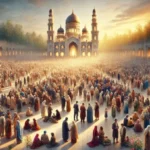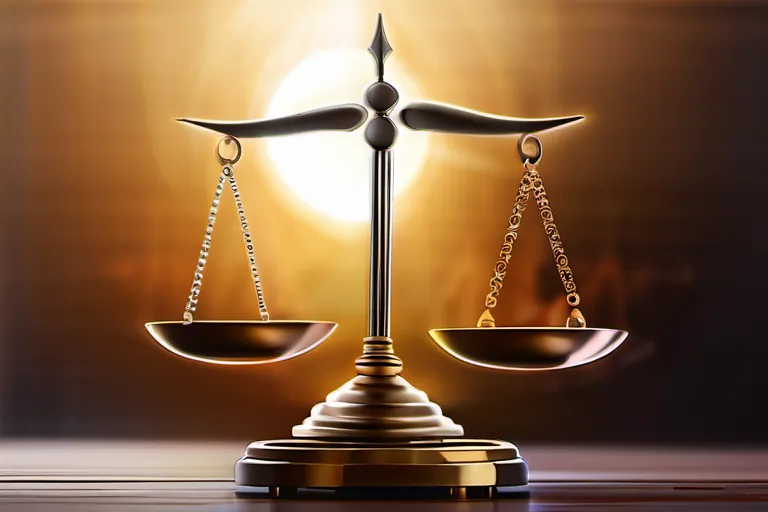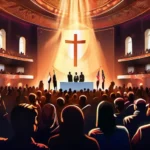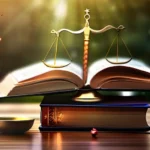Exploring the complex relationship between faith and governance, delving into historical examples, contemporary issues, and potential resolutions.
In this article, we will examine the intricate and often contentious relationship between religion and politics. From ancient civilizations to modern democracies, we will explore how faith has influenced political systems and vice versa, shedding light on the complexities of this relationship.
The historical roots of the conflict
How did religion become intertwined with political power, leading to conflicts that still echo today? Let’s travel back in time to explore the historical roots of this complex relationship. Imagine religion as a tree, deeply rooted and sprawling its branches over various societies. In some cases, this tree has been used to justify the divine right of kings or the infallibility of dictators, creating a formidable alliance between faith and political power.
Consider the Roman Empire. Here, religion was not just personal but became a tool for governance. Emperor Constantine’s conversion to Christianity brought about significant changes, blending religious doctrine with state policy in ways that would shape future generations. The church, once marginalized, now held immense power, often overshadowing secular institutions.
On the other hand, there are instances where religion has promoted peace and cooperation. The Magna Carta, signed in 1215, is a fascinating example of how religious principles can influence political agreements. This document, influenced by Christian ideals, laid down basic tenets that limited royal power, marking an early form of civil rights.
Let’s look at the National Liberation Front (FLN) in Algeria. During their fight for independence from France, religious leaders provided a moral and spiritual foundation. Their message of resistance resonated with the people, blending political aspirations with religious fervor, creating a powerful movement that eventually led to independence.
Through these examples, it’s clear that religion can serve as both a source of conflict and harmony in politics. The key lies in how faith is interpreted and applied within societal structures. As we move forward into the modern era, understanding these historical dynamics will be crucial for navigating the complex landscape of contemporary religious and political interactions.
Religion in modern politics
Religion has always played a significant role in modern politics, often influencing policy-making and elections. It’s like a complex tapestry where every thread represents a different belief system, all intertwining to shape the fabric of society. How does religion impact electoral processes? Can religious beliefs guide public policies without leading to conflict?
Take the example of Israel-Palestine, where religious tensions often overshadow political discourse. The question arises: can religious leaders and followers coexist peacefully while advocating for their causes in a political arena? In this tug-of-war between faith and governance, every rope pulled taut by one side risks breaking the entire structure.
Moreover, consider the role of religious groups during election campaigns. Are they merely supporting candidates or do they have the power to sway public opinion towards certain policies? This influence can be subtle yet profound, shaping not just individual votes but also broader societal values.
The impact of religion on international relations is another layer in this intricate web. Countries with significant religious demographics often find themselves navigating delicate diplomatic waters when dealing with nations that have different or competing ideologies. How do these religions mediate conflicts and promote dialogue between states?
Is it possible for politicians to use religious rhetoric to manipulate public opinion, thereby undermining the democratic process? The line between using religion as a tool for governance and promoting genuine ethical leadership can be blurred.
In conclusion, while religion can serve as a powerful catalyst for positive change, it also carries the risk of fueling division. As we navigate this complex landscape, the key lies in fostering dialogue that respects diverse beliefs and values. Only then can we truly harness the power of faith to shape politics for the better.
The separation of church and state
Is there really a conflict between religion and politics, or are they just two sides of the same coin? The idea that religious institutions and government should be separate is not new; it has its roots in historical movements and philosophical debates. The concept of separation of church and state was first articulated by Thomas Jefferson in a letter to the Danbury Baptists, where he wrote about the need for an ‘impenetrable barrier’ between religious institutions and government.
This separation is often seen as necessary to ensure freedom of religion and prevent any single faith from dominating public life. However, its implementation varies greatly across different countries and cultures. In some places, like the United States, it has been a cornerstone of governance; in others, religious influence over state affairs remains strong.
But what happens when religious beliefs shape political policies? Consider the metaphor of two ships passing on the ocean: they can coexist peacefully without ever touching, or one might try to anchor itself on the other. Similarly, religion and politics can exist separately but still interact in various ways that can sometimes lead to tension.
Take, for instance, the role of religious leaders in advocating for certain policies. Should a politician’s stance be influenced by their faith? Or does this cross into problematic territory where personal beliefs dictate public policy?
The implications of separating religion and state are vast. On one hand, it protects individual freedoms and prevents any single religious group from exerting undue influence over the government. On the other hand, it might lead to a lack of moral guidance in governance, as religion often provides ethical frameworks.
So, is this separation a means to protect democracy or just a way for the state to avoid dealing with complex moral issues? The answer likely lies somewhere in between. It’s about finding that delicate balance where faith and politics can coexist without conflict, much like how two rivers can flow side by side without merging.
Religious extremism and political violence
Can religion and politics coexist peacefully, or do they inevitably clash? The link between religious extremism and political violence has been a contentious issue for decades, prompting countless debates and inquiries into how these two realms interact. When we think about extremist groups using faith as a banner to fuel violent actions, the question arises: Is there an intrinsic conflict between religious teachings that advocate peace and non-violence and the urge to impose beliefs through force?
Historically, numerous examples demonstrate the dangerous dance between religion and politics. Take the case of holy wars fought in the name of different faiths, where the zeal for spreading one’s religious beliefs has often led to bloodshed and oppression. How can we reconcile the idea that religion should be a source of peace with the reality that it has been used as a justification for violence?
The key lies in understanding the motivations behind such actions. Often, political violence stems from a desire to impose a particular interpretation of religious law or to protect one’s community against perceived threats. However, this approach can lead to a vicious cycle where acts of violence beget more violence, ultimately destroying the very peace and stability that all religions preach.
Strategies for preventing such conflicts are multifaceted. One crucial step is fostering interfaith dialogue and understanding. By bringing together people from different religious backgrounds, we can promote mutual respect and reduce the risk of extremist narratives gaining ground. Additionally, governments must ensure they do not favor any one religion over others, maintaining a strict separation between church and state to prevent religious groups from wielding too much political power.
Another vital approach is addressing the root causes that fuel extremism, such as poverty, inequality, and lack of education. By investing in these areas, we can create societies where people feel heard and valued, reducing the allure of extremist ideologies that promise a sense of identity and purpose through conflict.
The path to a harmonious relationship between religion and politics is complex but not insurmountable. By working together, we can ensure that religious teachings inspire compassion, peace, and coexistence rather than division and violence. After all, isn’t the ultimate goal of any faith to bring people together in love and understanding?
The role of religion in democratic societies
How does religion shape democratic societies? The question looms large, much like a lighthouse guiding ships through turbulent waters. Religion has long been intertwined with governance, often serving as a moral compass for citizens and lawmakers alike. But can faith truly contribute to the democratic values of tolerance, equality, and social justice?
Let’s delve into this intriguing relationship. Democracy thrives on diversity—diverse beliefs, diverse opinions, and diverse voices. And religion, with its rich tapestry of teachings, has the potential to enrich these conversations. Consider tolerance. Many religious texts emphasize compassion and understanding towards all beings. When these principles are embraced by a society, they foster an environment where differences can be respected and celebrated rather than feared or exploited.
But it’s not just about preaching; it’s about practicing. How does one translate those lofty ideals into actionable policies? Here, religion can play a crucial role in promoting equality. In many communities, religious leaders have been at the forefront of advocating for marginalized groups. From women’s rights to LGBTQ+ acceptance, faith-based movements have often paved the way for broader societal change. These efforts highlight how religion can be a powerful catalyst for social justice, driving legislation and community action towards more inclusive societies.
The challenge lies in ensuring that these contributions are made without trampling on individual freedoms or imposing one’s beliefs onto others. It requires a delicate balance, much like walking on thin ice. Governments must create spaces where religious leaders can engage with the public without undermining democratic principles. This is where education and dialogue become paramount. By fostering open discussions, societies can navigate the complexities of integrating faith into governance while preserving pluralism and freedom of thought.
In conclusion, religion’s role in democratic societies is multifaceted. It can be a source of strength, promoting values that align with democracy’s ideals. But it also demands vigilance to ensure that this relationship remains healthy and productive for all citizens.
Finding a balance: Resolving the conflict
So, how do we find that delicate balance between religion and politics? The quest for harmony often seems as elusive as finding a needle in a haystack. Yet, every conversation, every dialogue, is like threading a needle through one more thread, slowly weaving together the fabric of societal peace.
The key lies not just in understanding but also in respecting different perspectives. Imagine religion and politics as two rivers flowing side by side. They often meet at times of crisis or social change, creating eddies and rapids that can either unite or divide communities. The challenge is to ensure these rivers flow together smoothly, nourishing the land they pass through.
Dialogue is the bridge that connects them. It’s not just about talking but truly listening to each other’s concerns and values. By engaging in meaningful conversations, we can explore common ground and address the points of tension. For instance, when religious leaders and politicians come together for dialogues, they can tackle issues like poverty, education, or healthcare more effectively.
Compromise is another crucial element. No one side has a monopoly on truth, so finding middle ground is essential. It’s about agreeing to disagree on some points but seeking consensus where possible. This doesn’t mean diluting core beliefs; rather, it means recognizing that in a pluralistic society, multiple viewpoints can coexist harmoniously.
Moreover, mutual respect must be at the heart of every interaction. Each community should value and honor its own traditions while also showing reverence for others. It’s like walking on an ethereal path where every step is a delicate balance between our deepest convictions and the need to live in harmony with others.
In conclusion, resolving conflicts between religion and politics requires a multifaceted approach: fostering dialogue, embracing compromise, and practicing mutual respect. These steps are not easy, but they offer a promising pathway toward a more unified and peaceful society where everyone’s voice is heard and valued.
Conclusion
 Ultimately, it is clear that the relationship between religion and politics is a multifaceted one, with both positive and negative impacts. By understanding the historical context and current trends, we can work towards finding a balance that respects the role of faith while promoting peaceful coexistence and democratic values.
Ultimately, it is clear that the relationship between religion and politics is a multifaceted one, with both positive and negative impacts. By understanding the historical context and current trends, we can work towards finding a balance that respects the role of faith while promoting peaceful coexistence and democratic values.











